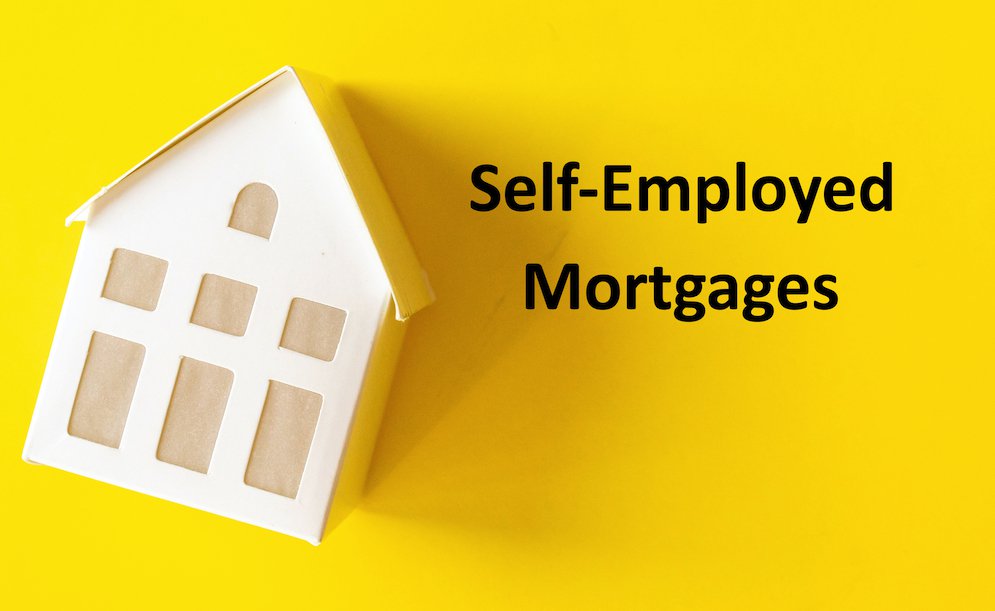How To Get A Mortgage When You Are Self Employed

Getting approved for a mortgage when you're self employed
Over the last few decades, self-employment levels in Canada have risen dramatically. More and more Canadians have been abandoning traditional job structures and choosing to generate an income in a nonconventional way. According to statistics, over 500,000 Canadians transition into the ranks of self-employment every year. In 2018, 2.9 million Canadians had registered as self-employed and made up over 15% of the nation’s total employment.
What Does It Mean To Be Self-Employed?
There are many definitions of being self-employed and each one differs from the next. Some self-employed individuals are business owners, others have professional careers such as IT Contractors or Doctors, some are commissioned workers, others are freelancers, some own a farm and others own rental properties. Each of these classifications are considered a form of self-employment yet they operate using a completely different business structure. Thus, it can be difficult to factually quantify how many self-employed people there currently are in Toronto or Ontario or Canada. However, we do know that according to Service Canada, the average self-employed individual tends to have a higher median income and net worth than the average employee working in traditional jobs.
How to get a mortgage if you’re self employed?
Although there are many benefits to being self-employed, it also goes hand in hand with quite a few more difficulties and challenges. One of the most prominent issues self-employed individuals encounter is a more complicated and convoluted process when acquiring a mortgage. Despite the ever increasing numbers of the self-employed workers, lenders have yet to figure out how to make it more simple for them to get approved for a mortgage in Canada and qualify for competitive mortgage rates.
Actually, rather than simplifying the process, the Office of the Superintendent of Financial Institutions (OSFI) released guideline B-12 in 2014, which called for federally chartered lenders to inspect self-employed borrowers even more closely. Under this guideline, it made it more difficult for self employed borrowers to qualify for a mortgage.
The reason behind the tightening of restrictions for self-employed individuals is that it is harder for them to prove their income. Lenders want to ensure borrowers will be able to keep up with loan payments and require them to prove their income, net worth and credit score. Salaried employees can easily fulfill these requirements by showing their T4, a letter of employment and some recent pay stubs. However, most people who work for themselves do not receive a T4 or letter of employment and need to use other means of income verification.
Self-employed individuals typically rely on stated income applications when applying for a mortgage. A stated income application is used by borrowers who might have a more difficult time showing their income using the traditional avenues. It is formulated based on how much the individual claims to earn and requires a signed income declaration and proof of self-employment. For your lender to accept your stated income application, it will need to be supported by the following documentation:
- Income tax return from the last two to three years. If your tax return is showing a loss in revenue for the time frame you are using, lenders are not going to look favourably on your mortgage application. It is not necessary to show a large positive revenue but a loss could really hurt your approval chances.
- Notice of Assessment from the Canada Revenue Agency (CRA) to demonstrate that you do not have any outstanding tax payments. Showing you are up to date on your tax payments is evidence in your favour showing that you are a reliable borrower.
- Proof that your HST and/or GST are paid.
- Proof that your business is licenced (a copy of your business license or articles of incorporation as evidence)
- Accurate financial statements for your business (income, revenue, expenses and break-even point)
- Contracts or agreements to demonstrate your expected revenue for the next few years (if applicable, it is very beneficial to be able to prove your income will remain consistent for the future).
- Have a minimum downpayment of 15% ready (10% for Genworth Canada)
- Evidence to support how much of the business you own.
- Personal and business bank statements for the past 6 months to 12 months to prove your and your business’s revenues and earnings.
Besides analyzing the stated income, lenders often review a borrower’s debt service ratios before they hand out an approval. A debt service ratio measures one’s ability to make monthly debt payments on time. It is also beneficial for self-employed borrowers to have a good credit score before applying for a new mortgage. Borrowers can check their credit score online with a credit bureau like Equifax or TransUnion so they know exactly what they are dealing with. However, if you have a weak credit score, a good mortgage broker will still have access to alternative lenders who would be able to consider your mortgage application with less restrictions than a traditional bank.
Do Lenders Approve All Self-Employed Individuals In The Same Way?
Some mortgage insurers like Genworth Canada classify self-employed individuals in various groups such as commission sales, corporations, sole proprietors, and partnerships. The classifications directly affect the mortgage qualification process for these individuals. Owners of incorporated businesses pay themselves a salary and are able to fall under the same qualification umbrella as other employed individuals. Thus, unincorporated businesses and sole proprietorships might benefit greatly from incorporating themselves for the purposes of obtaining a mortgage if they are applying for mortgage insurance through Genworth Canada, though we recommend speaking with a certified accountant and corporate lawyer before making that decision.
When applying for a mortgage, lenders look at the gross earnings of self-employed or commission based workers, and salaried employees quite differently. For the self-employed, some lenders consider the net income rather than looking at the gross income. The Canadian Mortgage and Housing Corporation also limits lenders to observing only the last three years of income. For commission based employees, some lenders look at 80% of their gross earnings and the average income from previous year’s tax documents. Some lenders may also permit self-employed borrowers to add certain tax deductions (car expenses, house expenses, capital cost analysis) back to increase their income. Other lenders may allow for a percentage to be added back to account for these business expenses.
If self employed borrowers think they may experience a challenge when applying for a mortgage, they can use a salaried employee as a co-signer. However, the co-signer will also have title ownership of the property so this may only be a good idea if they are someone you trust.
Getting A Self Employed Mortgage With Clover Mortgage
Although the path to homeownership can be more challenging for self employed Canadians, it is far from unattainable. With the right preparation and the sound advice of a mortgage broker, you can make your dream of owning a home a reality. Clover Mortgage specializes in supporting self-employed borrowers during their challenging mortgage application process.
Whether you are a business owner struggling to get approved or a commision-based employee who does not even know where to start, the knowledgeable and experienced mortgage brokers at Clover Mortgage are here for you! Our hardworking mortgage brokers will help you create a suitable plan of action and make sure you get the best mortgage rates and terms that we have available for you.
Call or text us at 416-674-6222 or email us directly at info@clovermortgage.ca to speak with a licensed mortgage broker who can work with you every step of the way. Let us take on the burden of the mortgage application process so that you can finally buy that dream property without a worry in the world.





